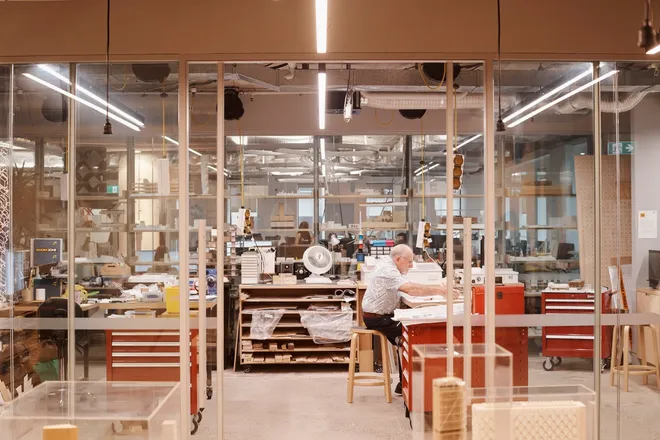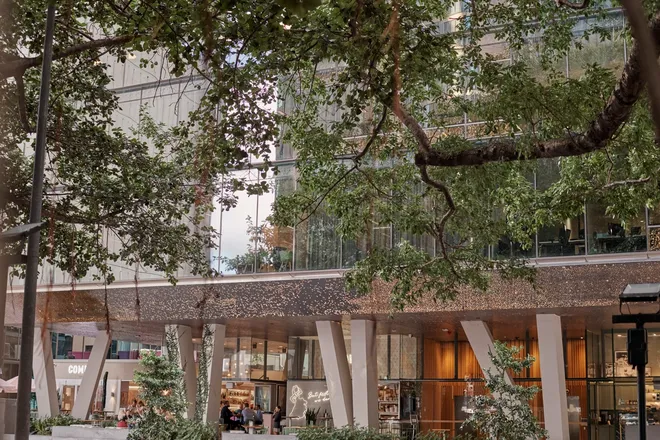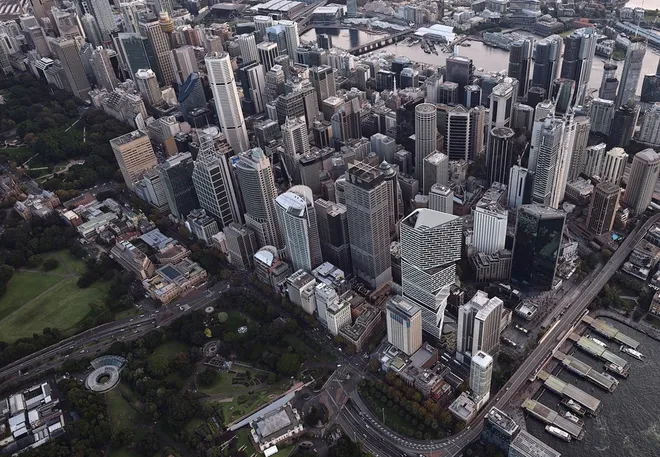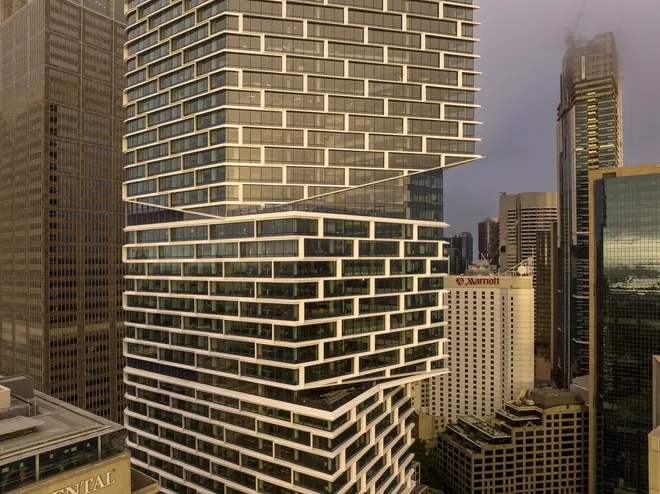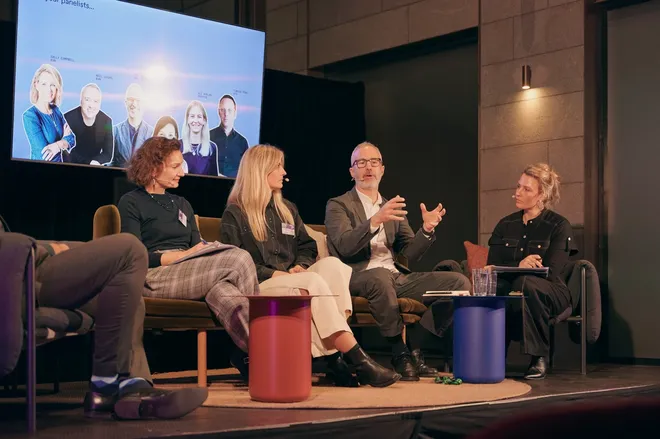BVN Stories, Events, News, Opinion — October 17, 2024
Never Waste a Crisis! BVN at SXSW Sydney
Italian Renaissance philosopher Niccolò Machiavelli once said, “Never waste the opportunity offered by a good crisis”, urging us to view crises as catalysts for change.
Today, we face multiple crises: a housing crisis marked by shortages and affordability issues, compounded by a climate crisis affecting construction efforts. These challenges are interconnected and demand our attention.

The construction sector is plagued by a significant productivity problem. It is one of the least digitised industries, slow to adopt new technology. Combined with rising material costs and a skilled labour shortage, progress is hampered. Legislative changes addressing embodied carbon and circularity – while necessary – add further complexity.
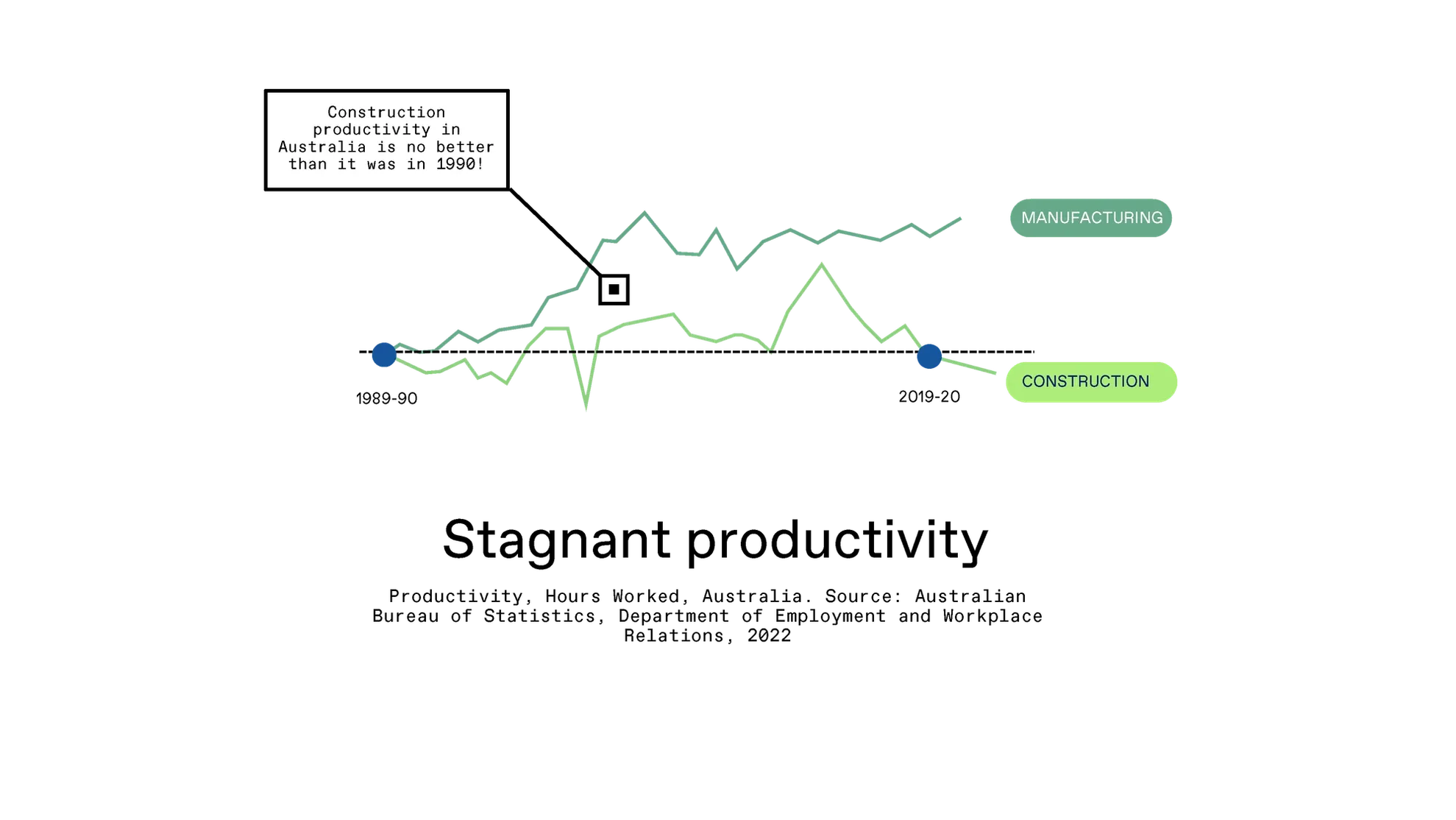
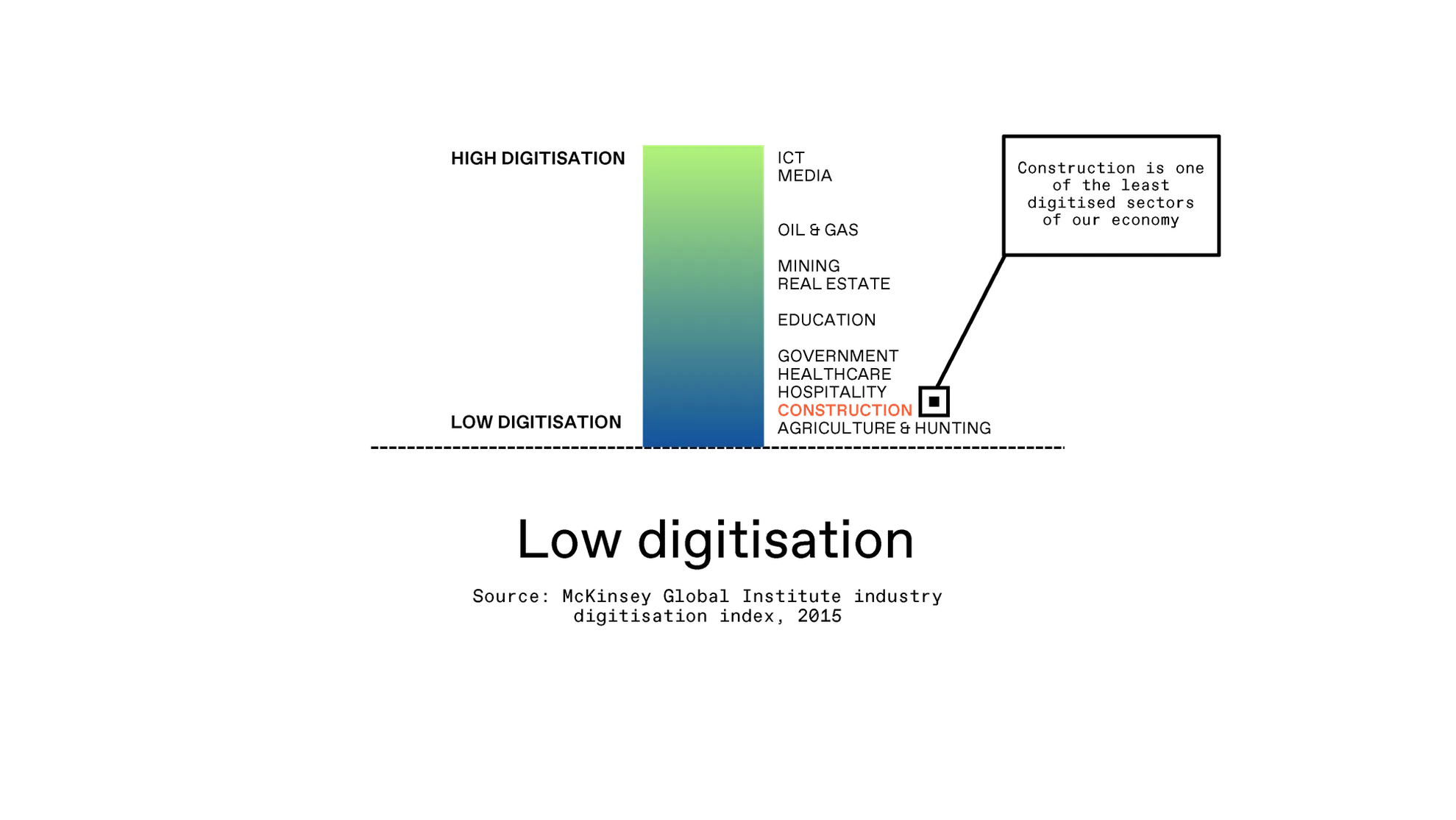
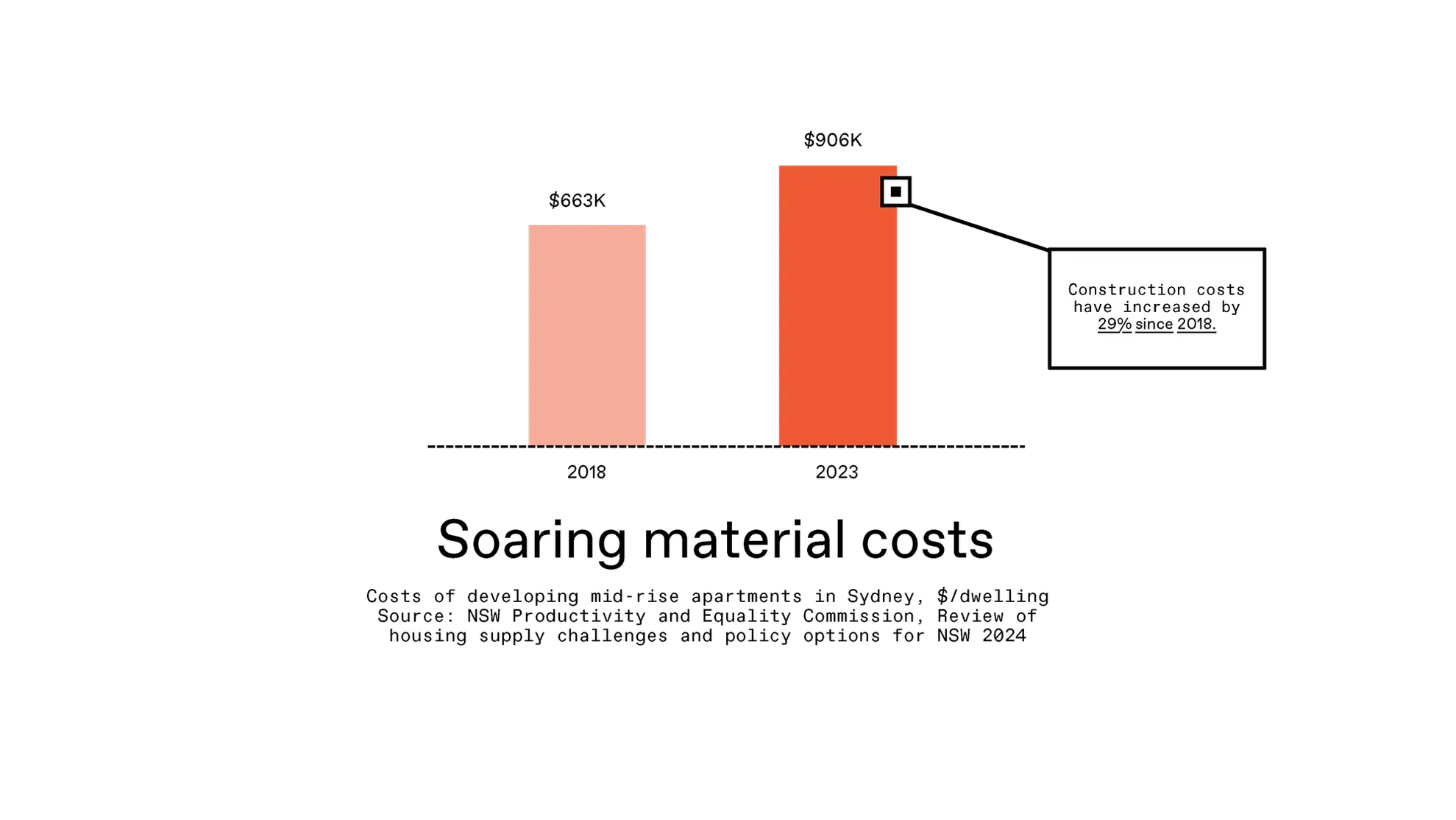
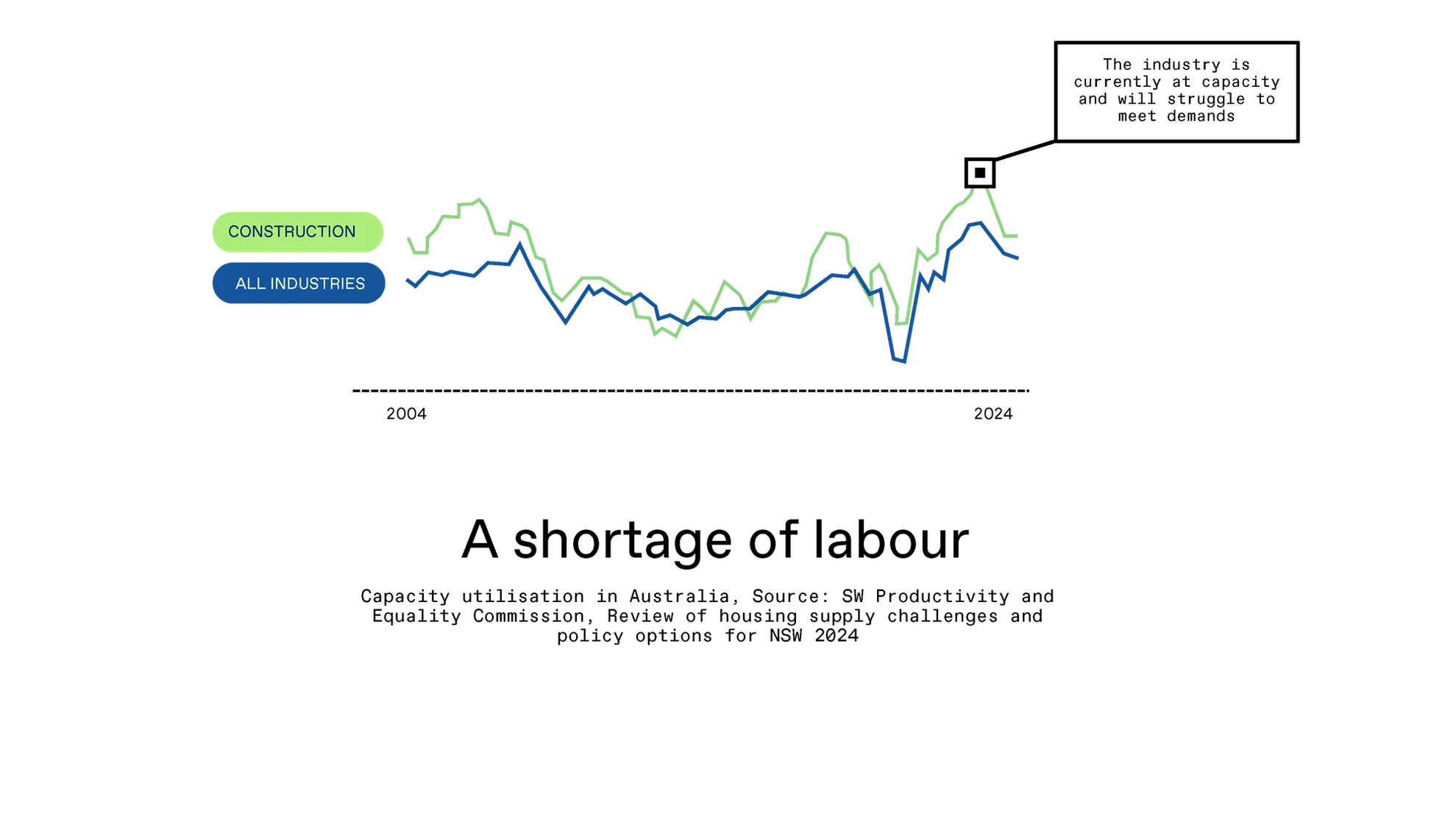
Despite these obstacles, the housing crisis presents a unique opportunity for innovation in construction, especially as the Australian Government's updated National Housing Accord sets an ambitious target of building 1.2 million new and well-located homes by 2029. Given current productivity issues, achieving this target necessitates significant reform and disruption of traditional construction processes.
We find ourselves at a unique juncture where the potential for transformative change in construction is ripe for exploration.
Sally Campbell – Principal
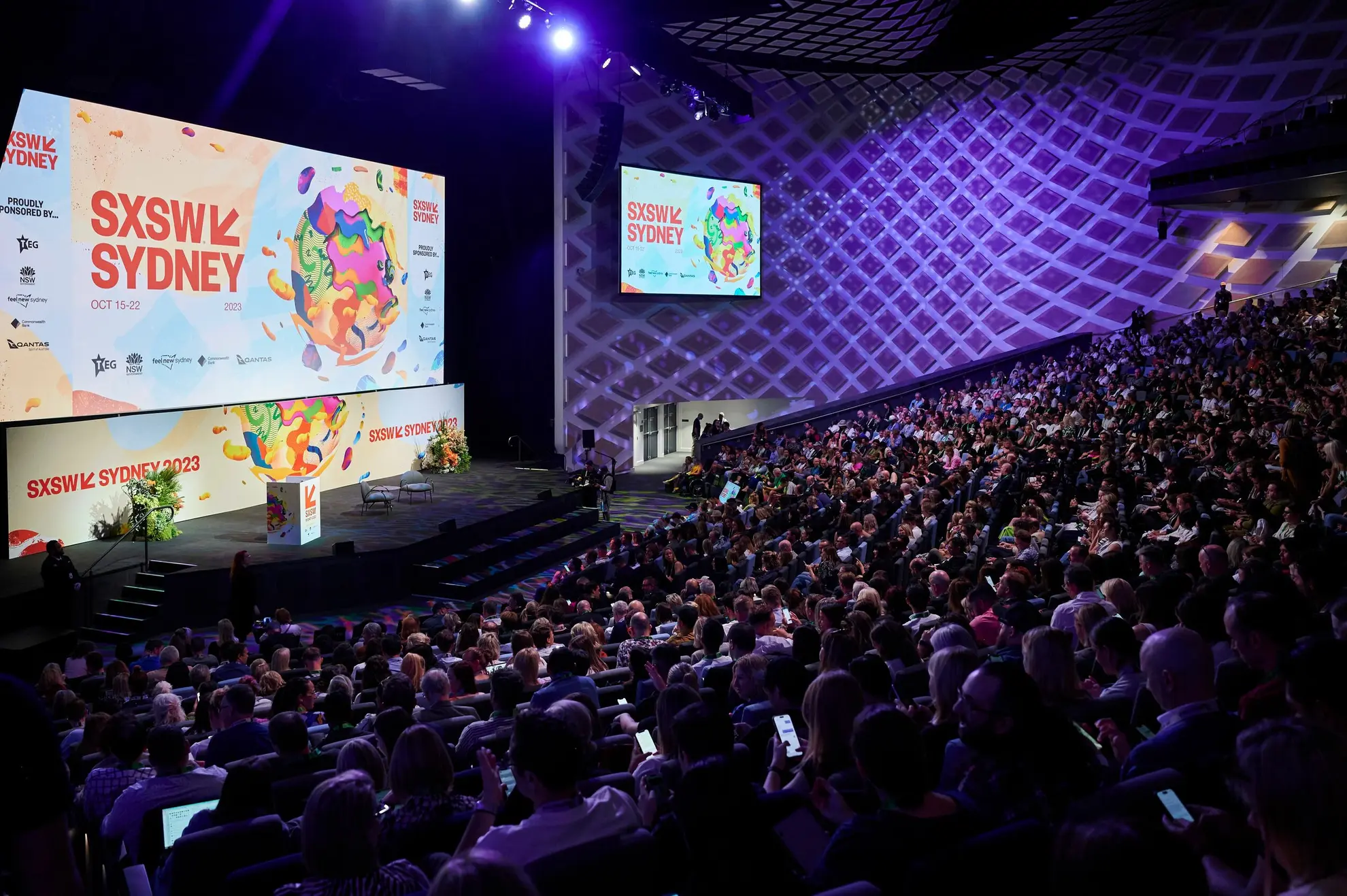
Founded in 1987 in Austin, Texas, SXSW was first held in Australia in October 2023. SXSW Sydney ran from 14-20 October 2024, combining innovation, music, screen, tech, games and culture.
On Monday 14 October, our SXSW Sydney session, Never Waste a Crisis, brought together a panel of advocates and experts, makers and system-shapers leading the charge.
Moderator and Principal Sally Campbell was joined by Professor Mathew Aitchison – CEO of Building 4.0 Cooperative Research Centre (CRC) an industry-led research initiative co-funded by the Australian government that focuses on advancing reform for the building sector; Ninotschka Titchkosky – Founder of Systems Reef, the 3D printed air system made from plastic waste that is revolutionising retrofits; and Nick Holden – Founder of Contour3D that uses 3D concrete printing, advanced robotics and material science to radically reduce construction timeframes on housing projects.
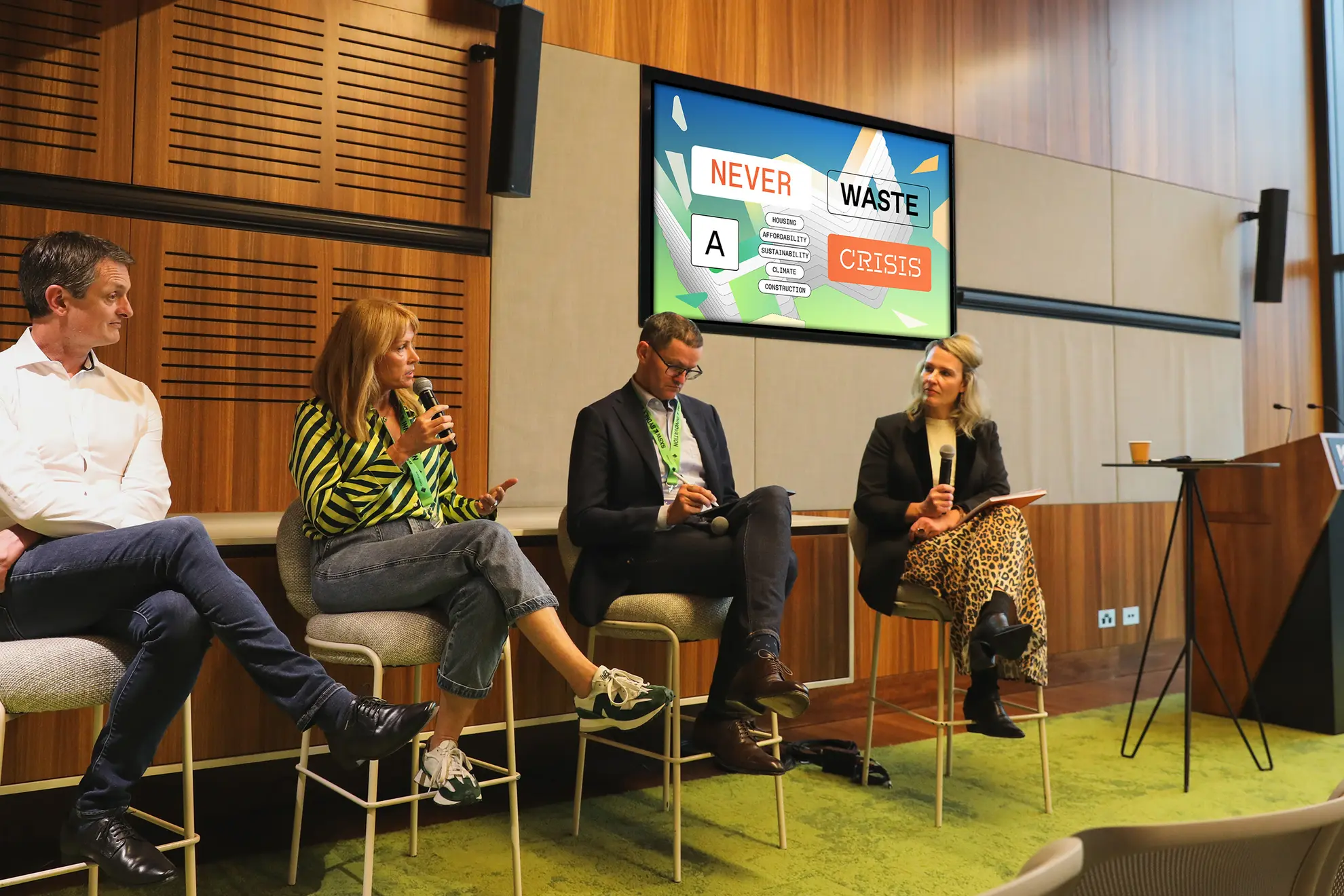
Left to right: Nick Holden, Founder, Contour3D;
Ninotschka Titchkosky, Co-Founder, Systems Reef;
Mathew Aitchison, CEO, Building 4.0 Cooperative Research Centre; and Sally Campbell, Principal, BVN.
According to Mathew, “Our cost issue is actually a productivity issue, and why do we have a productivity issue? Because we have an innovation issue. It’s like Russian dolls, we can see the cost issue but right at its core is actually an innovation issue”.
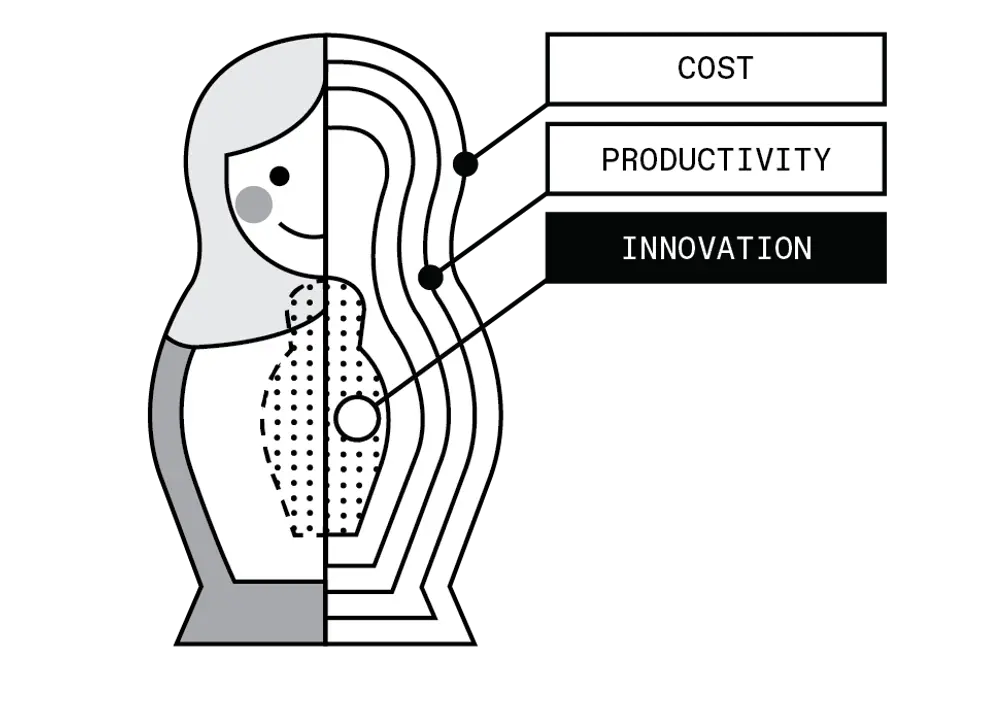
Given stagnant productivity, is there an entrepreneurial gap within the construction sector in Australia? We asked our panellists for their take on the state of innovation.
At a micro-scale, Ninotschka commented that “Companies haven't really got their head around the level of investment required in R&D. They’re actually not investing enough in innovation within their own businesses, let alone calling on government to fund the big picture.”
At the macro-scale, Mathew highlighted that the Australian construction sector has one of the lowest investments in R&D of any sizeable industry.
“There is no central agency or department in the Australian ecosystem that looks after policy and strategy as it pertains to innovation in the built environment. By comparison, if we look at agriculture, there are 16 large R&D corporations.”
The fragmented nature of construction workflows also inhibits innovation.
As Mathew explained, “There is a lack of incentivisation to innovate between each separate stage on the value chain, because you're commissioned to do a parcel of work, you're not being commissioned to change the system”.
We believe incremental change is not enough, however radical transformation is possible through digitisation, new materials and advanced manufacturing. How can we accelerate these modern methods of construction?
Modern Methods of Construction (MMC) are crucial in this dialogue, incorporating technologies like prefabrication, 3D printing, artificial intelligence (AI) and robotics that can streamline delivery, reduce costs and improve safety, performance and sustainability. While proven case by case, widespread adoption is not occurring organically.
Mathew agreed, saying MMC uptake is vital to get ‘the wheel of housing production turning faster’.
“If we want building to be more like manufacturing and less like hand-chiselling things out of stone, prefabrication, modular construction, digitisation and new technologies all help to optimise workflows and sustainability. No surprises there.”
Building 4.0 CRC currently has 70 projects spread equally across advancing areas.
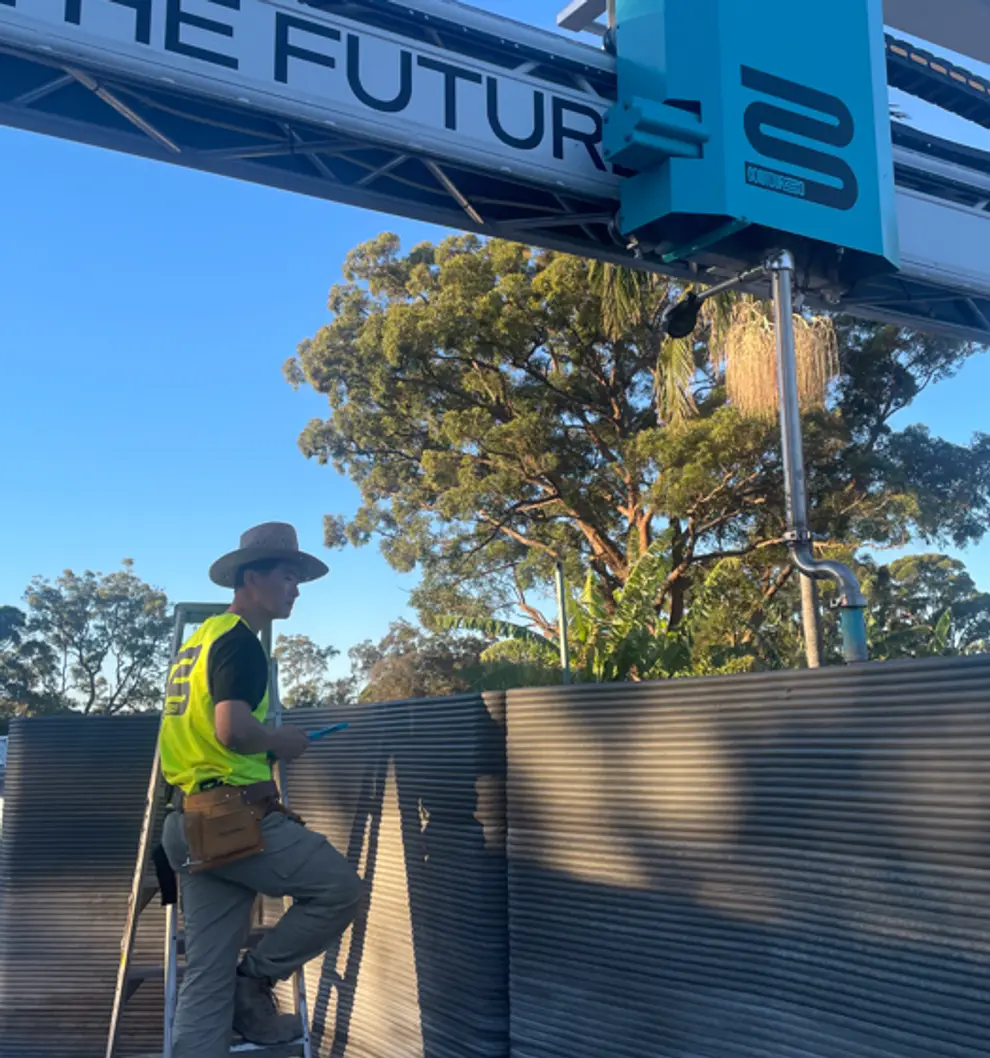


Top left: MMC in action at ANU Kambri in Canberra.
Bottom left: Systems Reef.
Right: Contour3D printing houses in concrete.
An outlier in this space, Nick’s Contour3D disrupts traditional building methods by 3D printing concrete homes, halving construction timelines without compromising quality or sustainability.
“I build machines, not houses,” says Nick, emphasising the need for a technological focus to drive change. “If we want to build a network that can eventually print 50,000-100,000 homes a year, scaling technology is essential,” he noted.
Having built large format 3D printers capable of printing houses – like the one for The Block: Tree Change in 2022 – Contour3D is now producing a superscale printer every week in an attempt to meet overseas and local demand, and plans to scale up faster.
Who is responsible for driving and funding change? And, how can we each play a part in the solution?
The panel recognised the financial barriers to fostering innovation, particularly the lack of government funding and venture capital for the built environment.
Mathew remarked, “Some think private industry should take the lead, and others think it should be government. But, of course, it’s both.”
Getting research, government and industry all working together around centrally defined problems is the most logical way to do this.
Professor Mathew Aitchison
Nick agreed, but cautioned against over-bureaucratisation, noting that costs escalate along with additional legislation. “Every year new regulations are set out, but the same amount is not removed... so, it compounds itself year on year.”
When the discussion moved to private venture capital prospects, Nick also compared Australian funding levels unfavourably with the US: “If we're raising an AUD$20-30 million valuation, comparable US start-ups are raising USD$120-150 million,” noting the gap tends to mean self-fund, or bust.
Ninotschka agreed, stating there is a hesitance to invest in physical assets compared to digital businesses.
“Ultimately, people need to see something to understand why it makes sense. That's why innovators are essential because they demonstrate value, even in small ways, to the industry that if companies are brave enough to rethink, it will pay off. Rather than seeing R&D as a cost, it becomes a way to future-proof business, improve profits and scale. New companies coming into the built world is just so important. And the government needs to really think about backing them.”

Ultimately, the panellists were unified in their vision for the future of construction.
Mathew insisted, “There’s no path to a sustainable pipeline of quality housing that doesn’t pass through innovation.”
Nick called for an optimistic view: “Let’s make decisions and make them rapidly.”
Ninotschka urged venture capitalists to seize the investment opportunities in modern construction methods, assuring, “There will be unicorns in the built world, and wouldn't it be a shame if you missed out?”
All great insights that continue to resonate.
In summary...
The issues we face—housing, climate, and construction—are deeply interconnected. Addressing them requires a comprehensive approach, where research, government, and industry collaborate to consider the whole system.
Architects, consultants, and contractors must also take the initiative to rethink workflows on every project – recognising we cannot affect wholesale change alone. We aim to move forward by not lamenting the crises but by seizing the opportunity for meaningful change in construction amidst these pressing challenges.
We extend our gratitude to our panellists, audience and SXSW organisers. If the ‘future belongs to the curious’, SXSW Sydney is a perfect platform to connect with broader audiences across the creative industries and inspire unexpected solutions.


